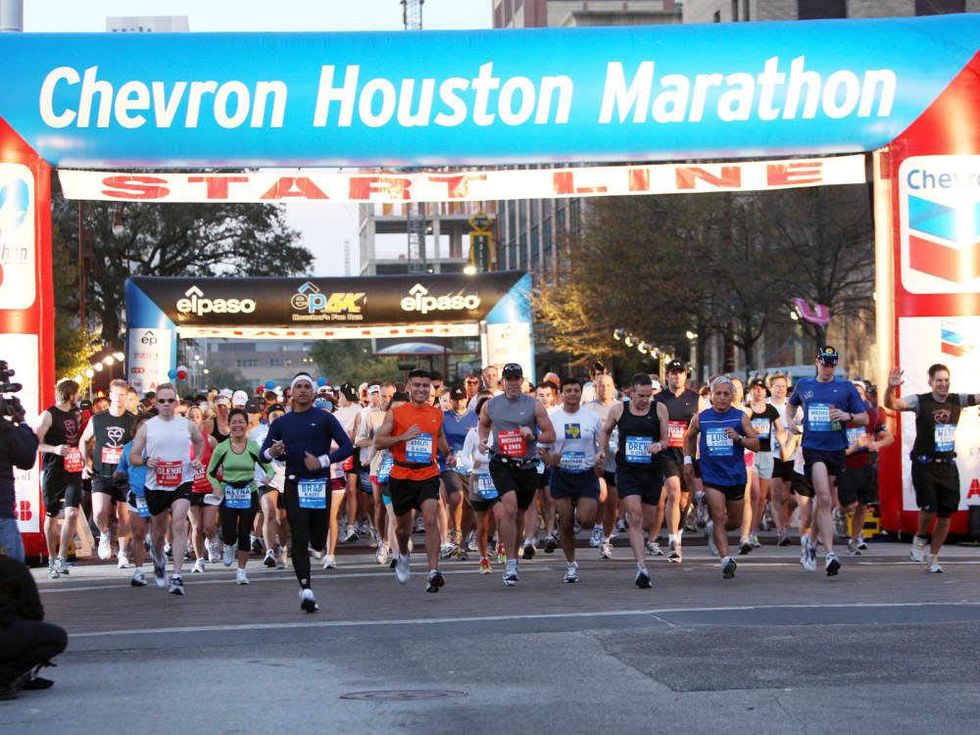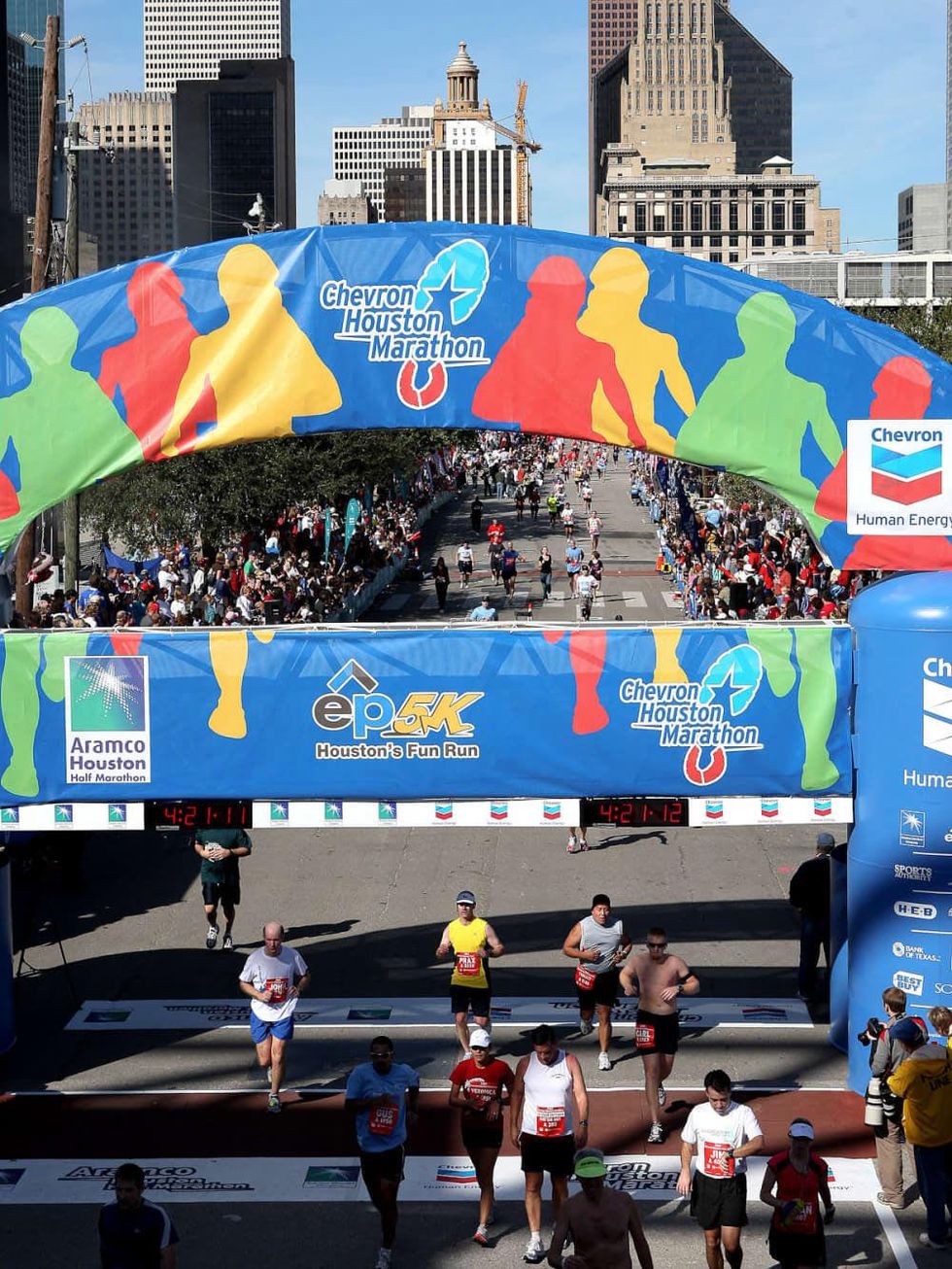Popp Culture
Houston Marathon runners ready to make history — again

This Sunday, runners taking on the Chevron Houston Marathon will probably be wondering around mile 15 why Pheidippides didn’t keel over at that distance in 490 B.C. instead of the 25-mile mark, where legend has it the Athenian runner collapsed. They’ll also probably wonder who had the brilliant idea to extend the race from 25 miles to 26.2 miles in 1908.
But for the thousands of runners who will take part in an event that dates back thousands of years, one thing is certain: They’re making their own history.
Marathon day is a proud one for not only all the runners, but the city of Houston as well. The Chevron Houston Marathon is heralded for its speedy, flat course and the generally great Houston running weather in mid-January. (We'll keep our fingers crossed this year.) It gives us all the opportunity to cheer on our friends and family, as well as take a look back at the historic distance and race.
The First Marathons
There is somewhat of a spotty history of the first marathon in 490 B.C. Parceled together over hundreds of years, the legend asserts that an Athenian soldier named Pheidippides (or according to some accounts, Philippides) ran somewhere around 25 miles from the coastal city of Marathon to Athens. He was bringing word of a victory over an invading Persian army, and he made it all the way to Athens. From there the story goes south. Upon getting to Athens, Pheidippides announced victory, and then died. While much of that is probably inaccurate, it did inspire a legend.
Pheidippides' feat also inspired a race during the first modern Olympiad held in Athens in 1896. The first Olympic marathon covered only 24.8 miles, the believed distance of Pheidippides’ original trek. This 1896 race differed from both the ancient race and the modern marathon of today. For starters, there was a little different philosophy on the pre-race prep. This Saturday night, most runners will be loading up on their carbs and hydrating. They’ll most likely not be pounding beers as some 1896 Olympians apparently did. Likewise, the 5,000 or so volunteers handing runners cups of water and energy drinks on Sunday won’t be serving any booze. Not so in 1896. Spyridon Louis, the 25-year-old Greek shepherd who won the race, apparently stopped mid-race to imbibe a bit of vino.
Marathon Changes
So quite a bit has changed between that race and the current marathon, including, and perhaps most importantly, the distance. The current mileage of 26.2 was set during the London Olympics in 1908. Largely to improve the sightlines of the royal family, race organizers added some mileage to the race so it would end right in front of the royal viewing box. It is indeed good to be the king.
That Olympics apparently inspired another marathon tradition: Giving a “God Save the Queen” shout out around mile 24. During each of the four marathons I’ve run, I’ve said some unprintable things during mile 24 if I was capable of uttering anything intelligible at all. At that point of the race, I’m usually just trying to find out who the hell put a piano on my back without me knowing.
So whether you’re going to be in the race or cheering on friends and family, you’re part of something special. Runners, the city is yours on Sunday. Go out and make some history.


